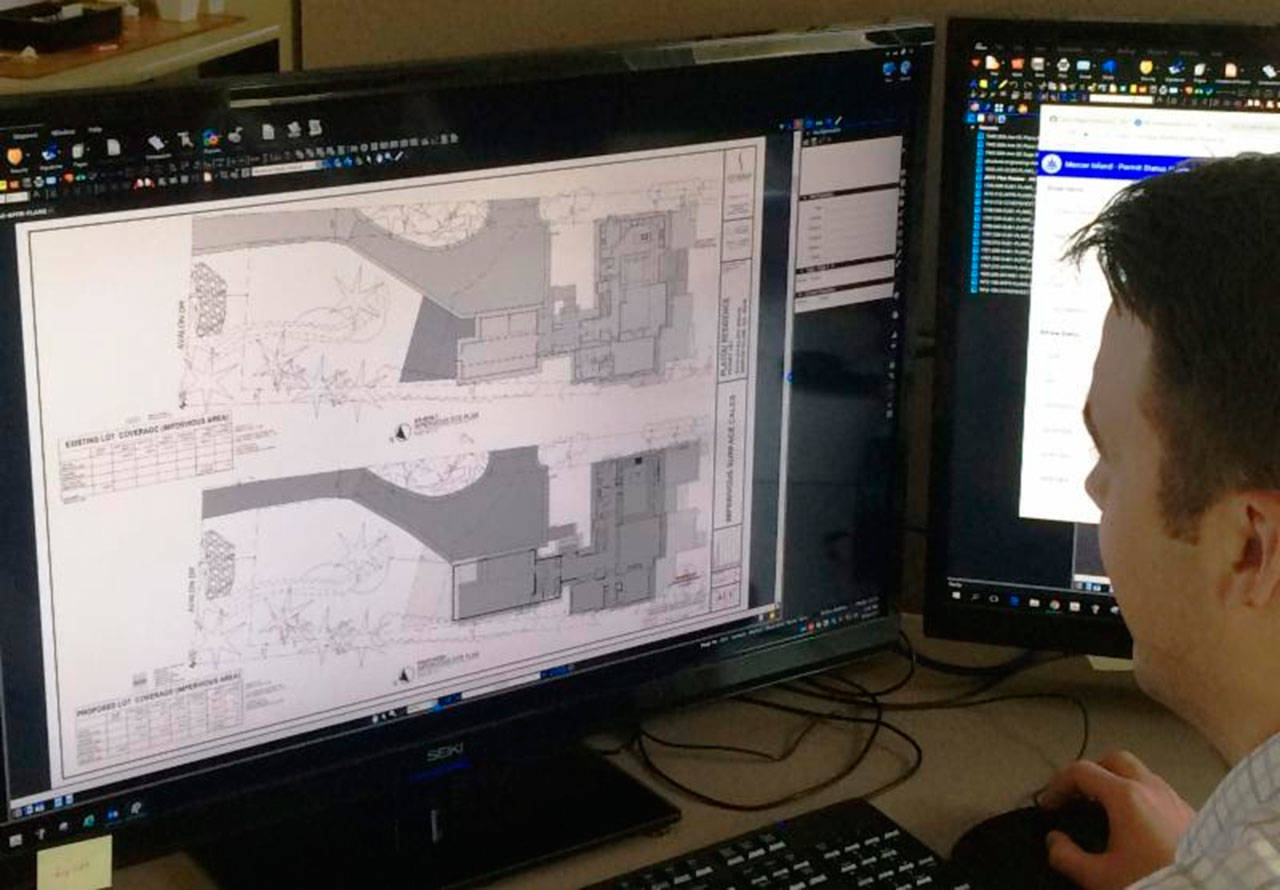A skim through the latest draft of Mercer Island’s residential development standards reveals that most of the rules for building and remodeling homes have been crossed out and rewritten since the city decided to undertake an update process in 2016. The 90-page document has more red text than black.
Most of the changes involve key factors that determine the size or mass of a house relative to the lot, including setbacks, lot coverage, gross floor area and height. Other amendments involve tree retention, permitting and noise.
Understanding that residents may be confused or overwhelmed by some of the complex codes, the city started a communications effort that involved social media outreach, an FAQ and a comparison table posted on its website and even explainer videos on YouTube.
Since June 5, the Mercer Island City Council has reviewed the changes five times, accepting public input at each meeting. Before then, the Planning Commission met for several months to develop recommendations. Members of each group also received hundreds of comments and emails from residents and the development community regarding the proposed changes.
In an email update to Islanders last month, Councilmember Dan Grausz, who has been one of the most involved people in the process since proposing a moratorium on some types of residential development in December 2015, said he thinks the decisions made to date by the council have been balanced.
“We have drawn harsh criticism from people on both sides of these issues,” he wrote. “I still believe that the words ‘compromise’ and ‘middle ground’ are not dirty words in politics and hope that most Islanders feel similarly. People should not let the perfect, or what is perfect in their opinion, be the enemy of the good.”
The council planned to conduct its final review of the draft code amendments at its meetings in September (including Sept. 5), with adoption of the ordinance anticipated on Sept. 19. If accepted then, the new code could go into effect as soon as Oct. 27.
That doesn’t mean outreach efforts will cease. City staff will plan to conduct targeted outreach between adoption of the ordinance and the effective date to educate permit applicants, builders, architects and residents of the new code provisions.
The education effort will continue in the weeks and months after the effective date to ensure all residents and customers understand the provisions of the code, according to the city’s webpage at www.mercergov.org/Residential.
According to the city’s FAQ, some residents have been wondering if there was a rush to submit permits before the new regulations are in place. Some have pointed out that many of the permits for homes that will be built in the next few years have already vested under the current code, meaning it may take a while to gauge the effects of the changes.
The city has seen higher than normal permit volumes over the last two years related to the boom in real estate development region-wide, according to its website, though “it’s not possible to discern whether there has been an additional boost in permit submittals in recent months due to the anticipated update to the regulations.”
Permit backlog persists
The city’s Development Services Group (DSG) is scrambling to keep up with a 10-year high in permit applications, despite having a new online system to help expedite the permit review process.
A recent survey found high customer satisfaction with DSG’s overall service, but satisfaction with the permit-approval process fell to 65 percent — a 20-plus point drop since 2013, according to the city’s weekly newsletter.
“The sheer volume of applications has overwhelmed our ability to keep up, even with our new online system in place,” said Paul Skidmore, senior plans examiner at DSG. “We know customers want things to move faster.”
Other cities in the region are experiencing similar challenges. The city of Seattle, for example, has stopped accepting new permit applications for the remainder of the year due to being over-capacity with applications received to date.
Geotechnical hazard issues on Mercer Island and the high proportion of unique home designs submitted by some of the Island’s wealthier residents add to the time and complexity of plan review.
“Every day is a new building and a new challenge, which makes work interesting as a plan reviewer, but the more complex structures take more review time,” Skidmore said.
Another impediment to quick permit approval is lean staffing at DSG. Staffing levels are determined by the city budget every two years and hold fairly constant.
“Our work volume is very cyclical, depending on the real estate market,” said Alison Van Gorp, administrative services manager for DSG. “When everyone is working at full capacity, we have no extra time to devote to other important projects like streamlining our online process even further, the way we’d like to.”
Learn more about MIePlan electronic plan review here.


